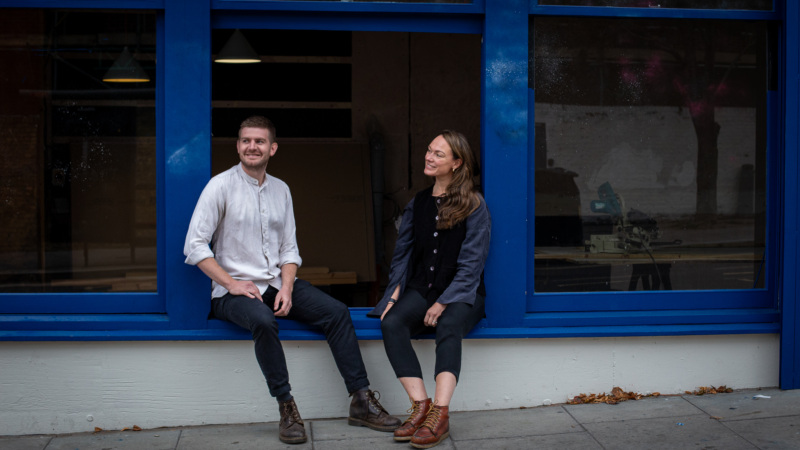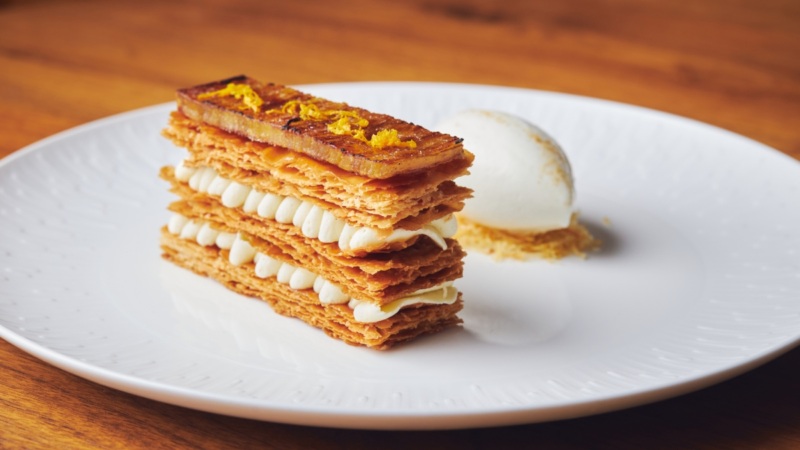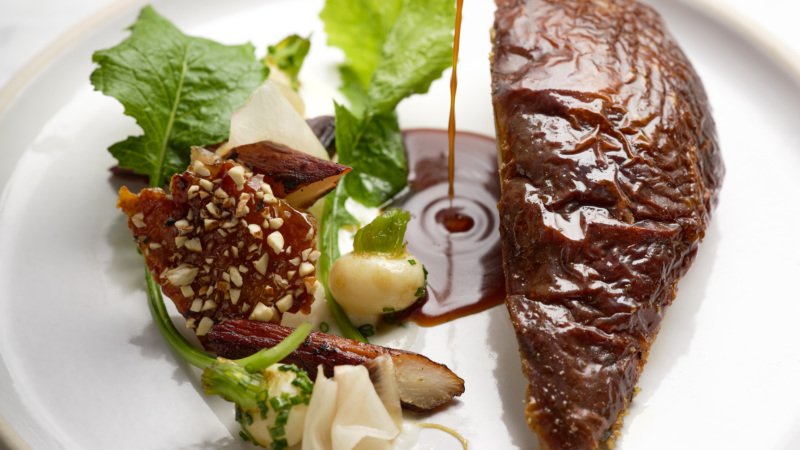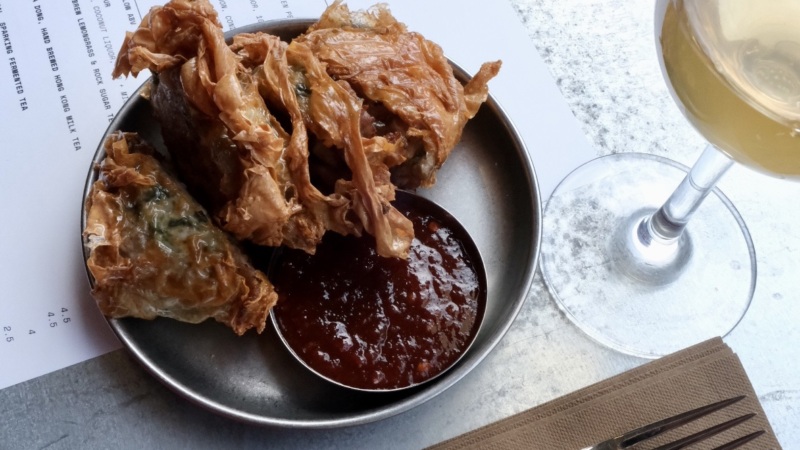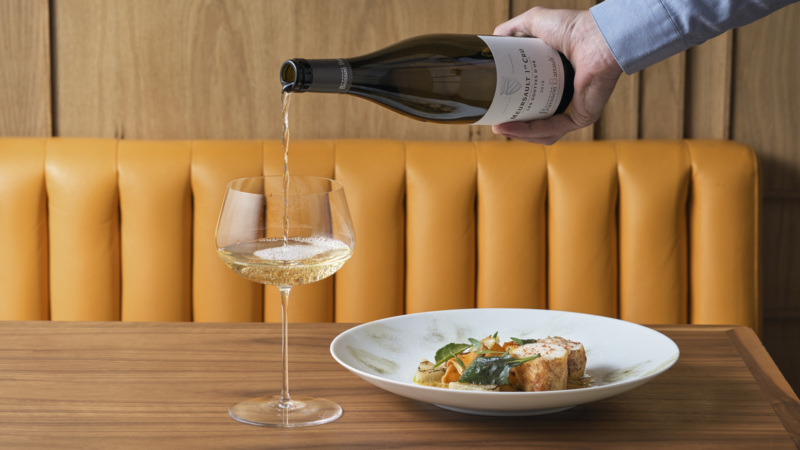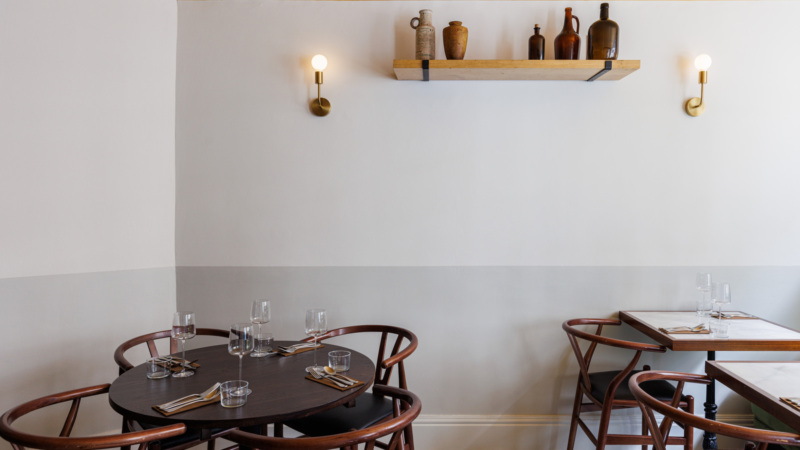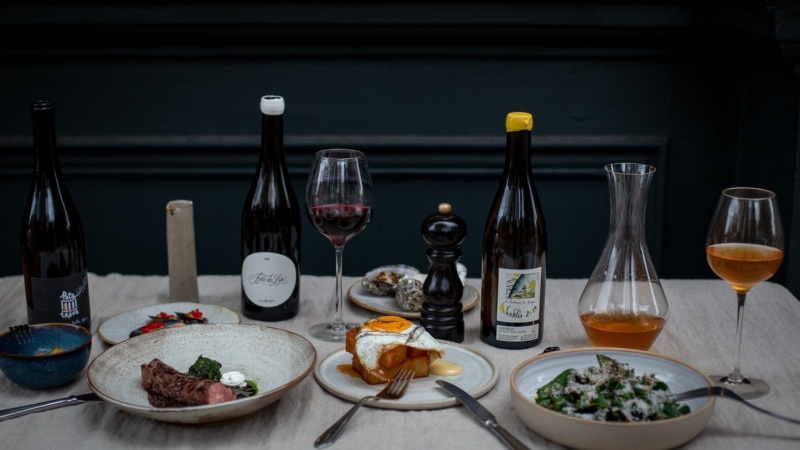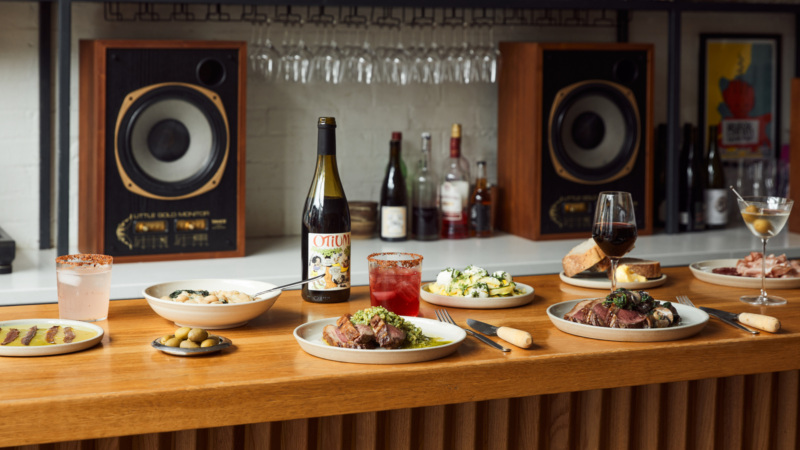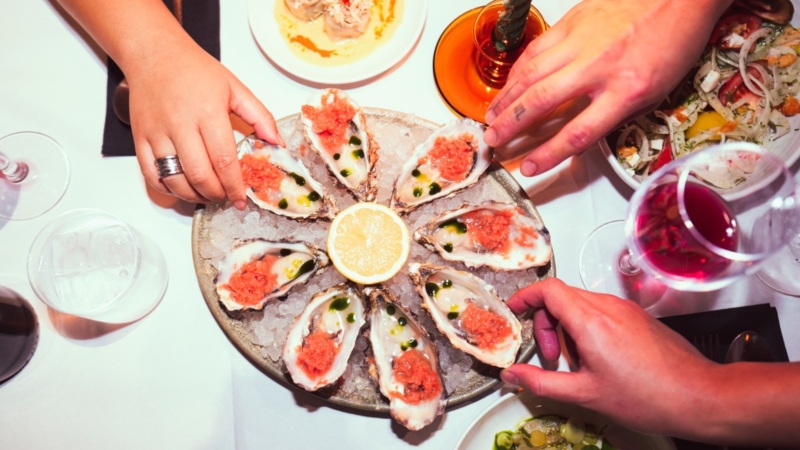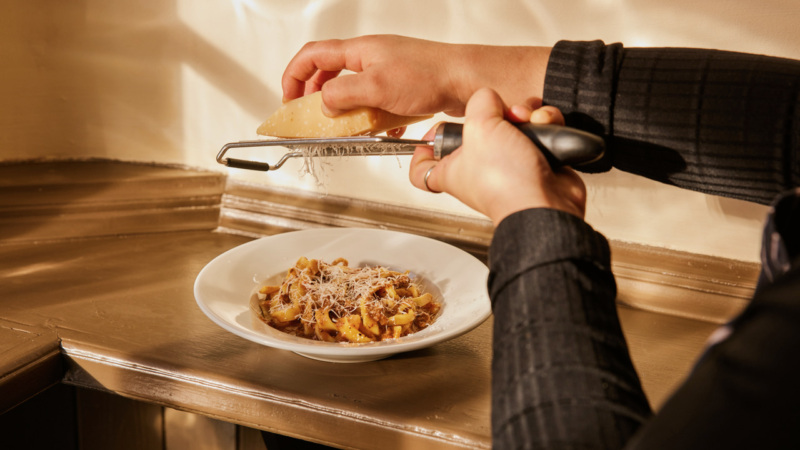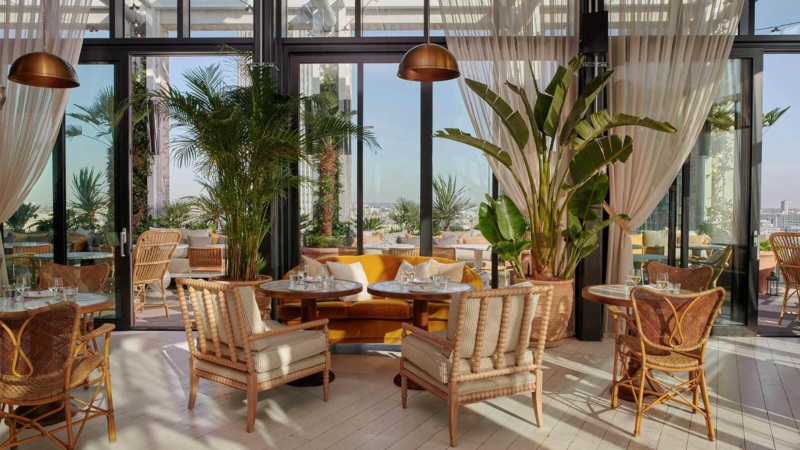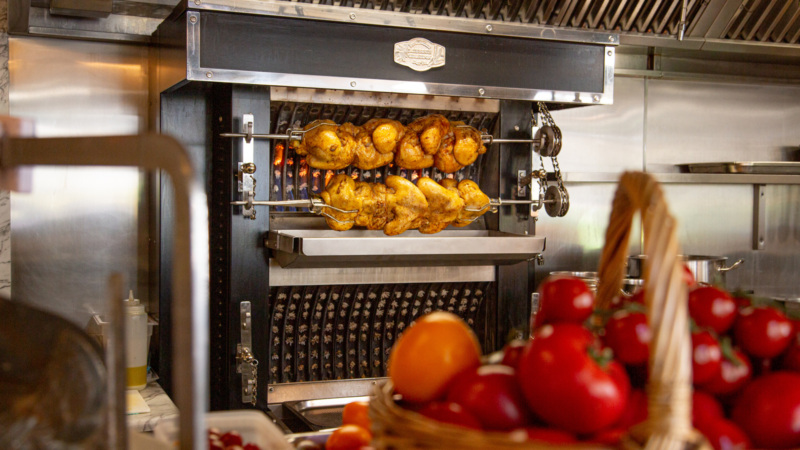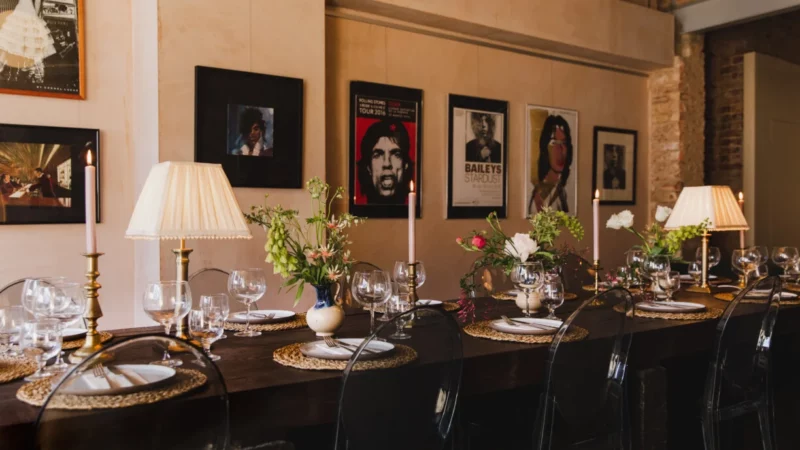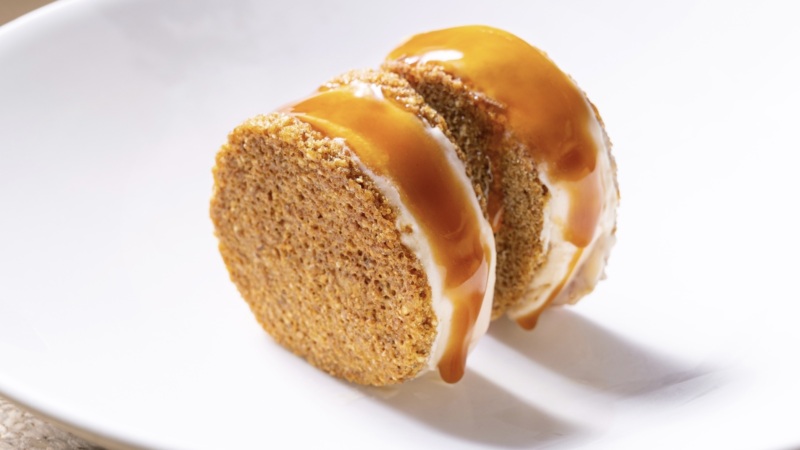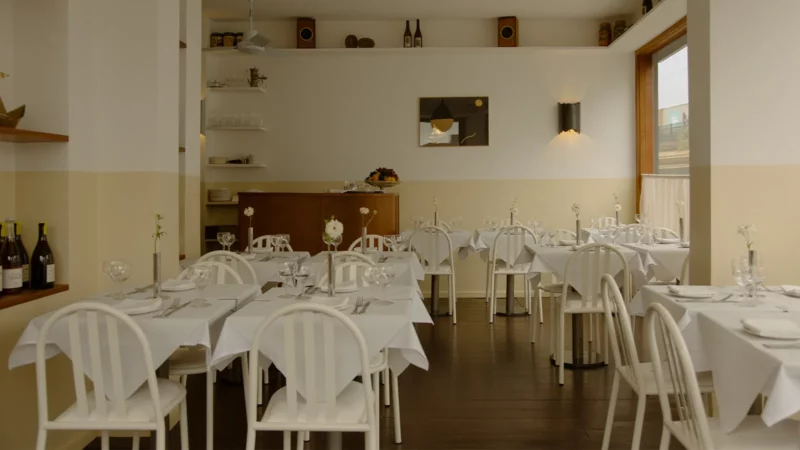
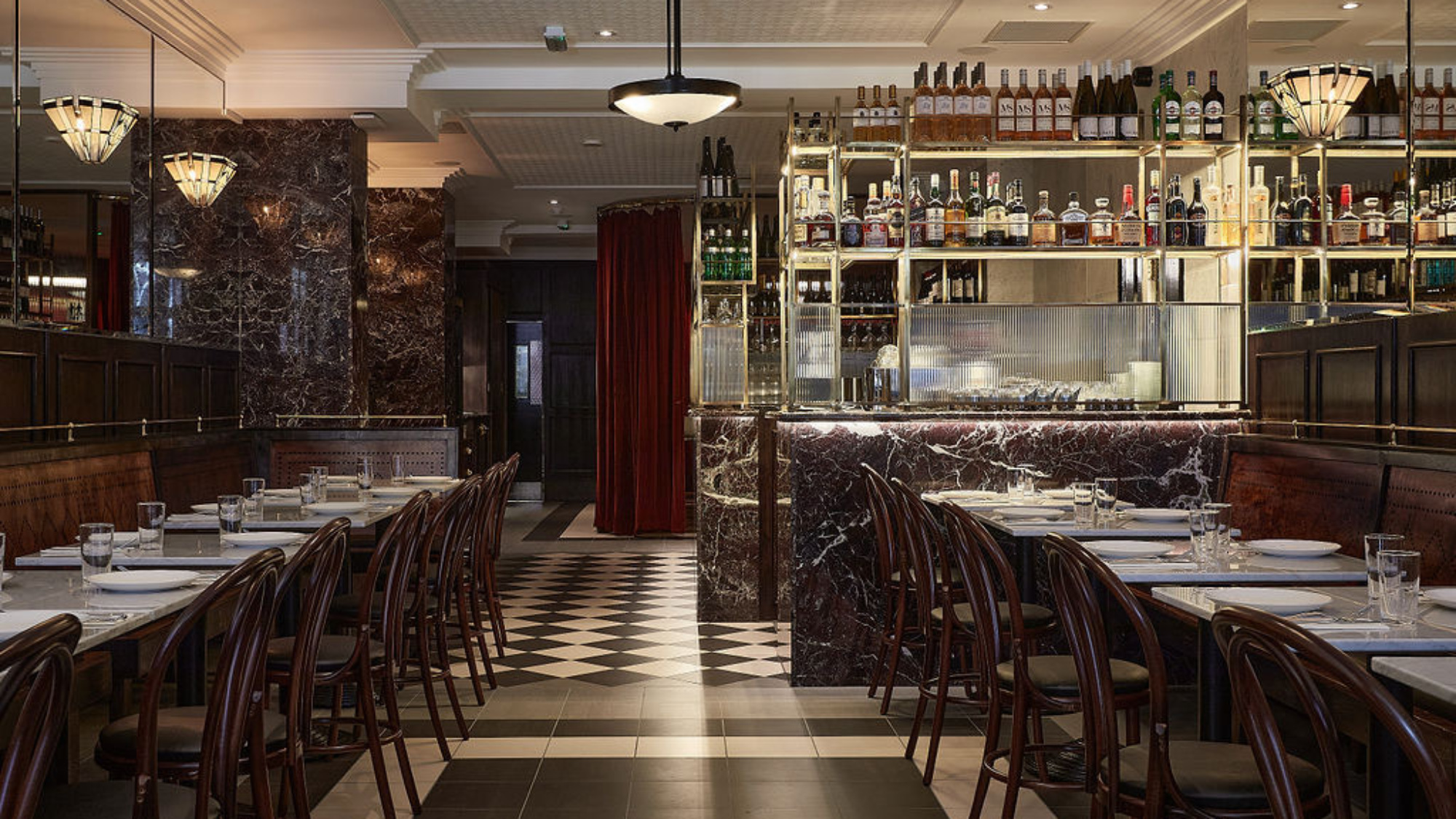
Gunpowder Proves Soho Has Still Got It. But For Harneet Baweja, Challenges Remain
The new Gunpowder Soho is, in some ways, a celebratory moment for founder and restaurateur Harneet Baweja. When Baweja — who has co-owned the acclaimed independent mini-group of modern Indian eateries with wife Devina since 2014 — and his team were hit by the pandemic in 2020, like everyone else, they pivoted hard, offering meal kits and starting a new delivery-only offering named Empire Biryani. The move helped the staff who had fallen through the cracks at their first restaurant in Spitalfields and another site at Tower Bridge, and attracted the attention of a future landlord in Soho.
“I said, ‘are you sure you want us? We’re not going to pay those really big rents like a big company,'” he says. “But they said that they wanted us to come, because they had eaten at the restaurant and thought we’d make a great addition to the neighbourhood.” We caught up with Baweja to learn more about the new restaurant, the dishes that inspired it, and the many ways that the restaurateur and his team have had to continually adapt to cope with another massive, similarly complex crisis.

Tell us about the new restaurant.
It’s Gunpowder coming to Soho. Who’s not lived in London and had a debaucherous night in Soho? It got me very excited. It was lovely that we were on Greek Street, because you have L’Escargot on one side, you have the original Soho House on the other side, and the old school members’ clubs. Restaurants that haven’t changed in 20-30 years, they’re all around.
The site used to be the old Pizza Express jazz club. We put the kitchen in the back like at Spitalfields – our first restaurant is about 25 covers, this is about 50 – so it’s the same layout, just bigger. We have a slightly bigger bar here, which allows us to do cocktails. And there’s a theatre next door, so we’re hoping people come in for a quick drink and bite before going to see a show.
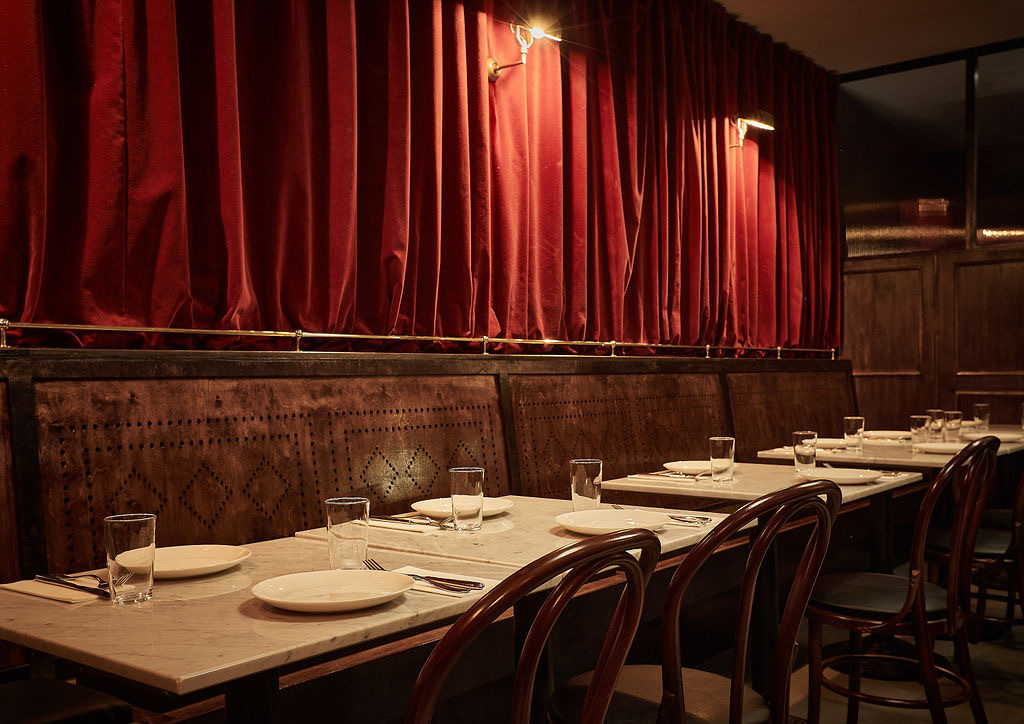
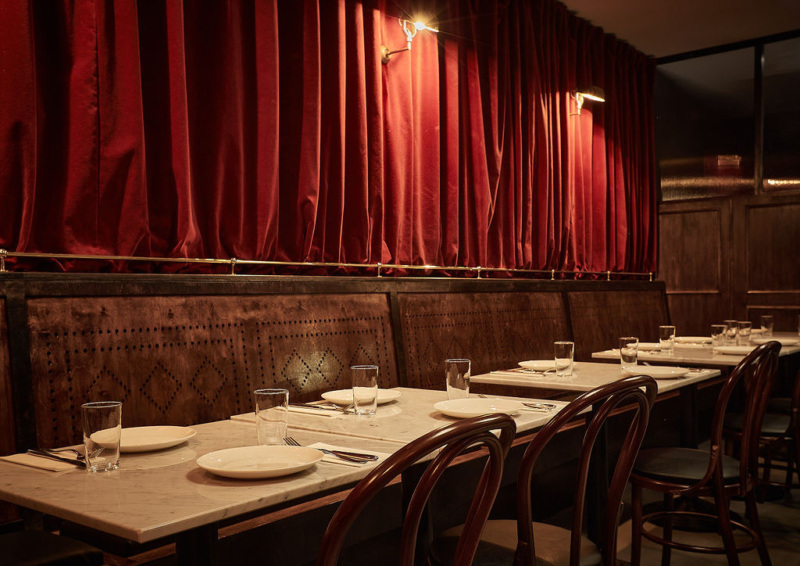
What can people expect, drinks-wise?
To be honest, I’m obsessed with Portuguese wines and wines from Northern Spain. I know people are going to diss me and say you need a sweet German wine or something from Alsace – I absolutely disagree. I feel that the soil and the culture and the cuisine around Portugal and northern Spain already has spices in their cooking whether its saffron, garlic and chillies, cloves or cardamom.
Which means that the same soil sort of grows the grapes. And I feel that it enhances the food instead of masking it, which is traditionally what people have done. So, we’ve leaned a little bit more towards new world wines and those of Portugal and Spain.
And with the bar, we’re going very old-school martinis, and our own version of a pornstar martini. If you’re going to be on one of the most debaucherous streets in London, you should have the most debaucherous drink from London.
What can people expect on the menu at the new restaurant?
From the food side, we’ve kept it quite simple. Just before and through the pandemic, we built decent relationships with dayboat fishermen and fishmongers closer to the coast – we’re getting a better supply of seafood. We’re going to do lobster from up north; we’re going to do mackerel; we’re going to do seafood specials. And we’re obviously doing the lamb chops, otherwise our regulars would murder us.
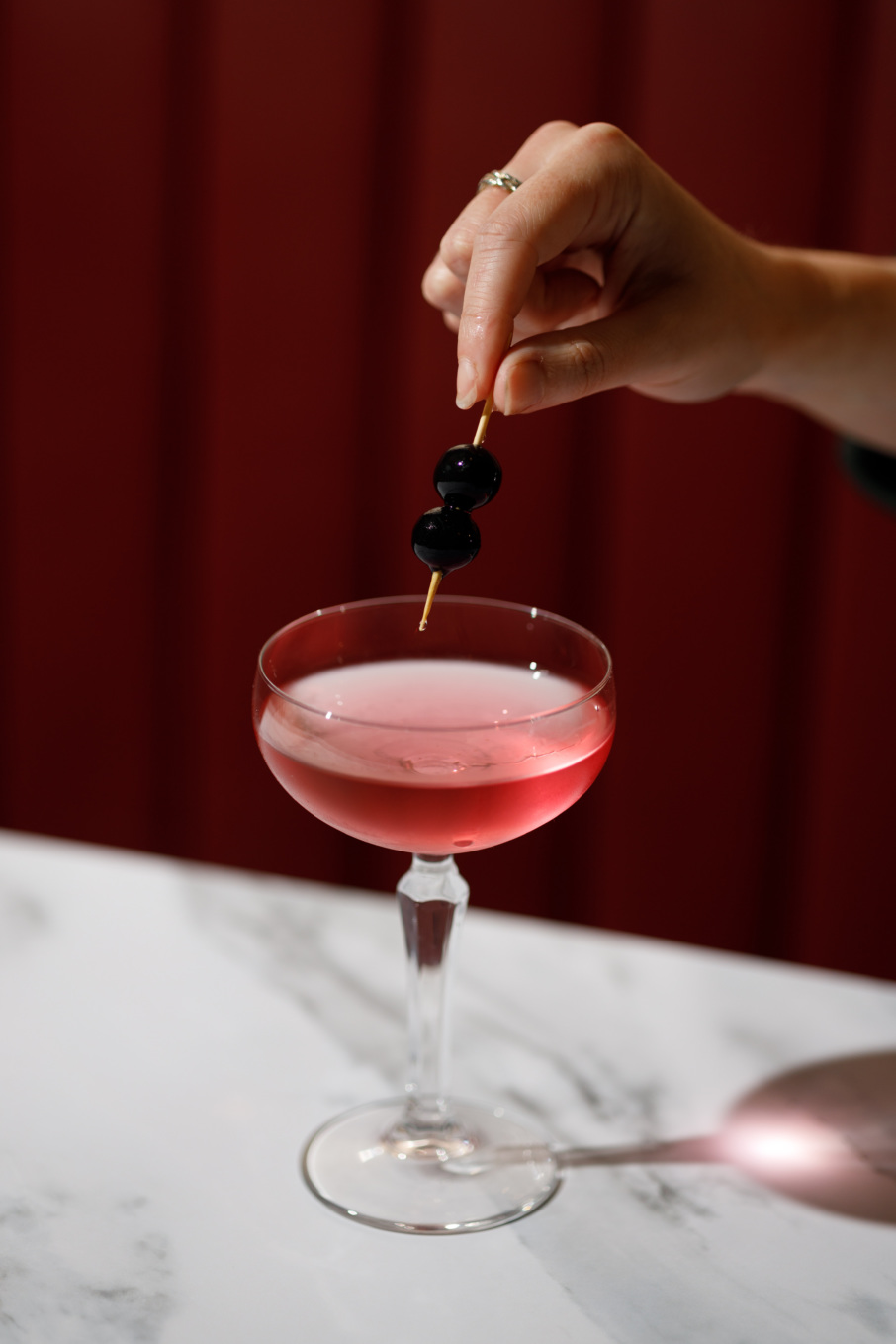
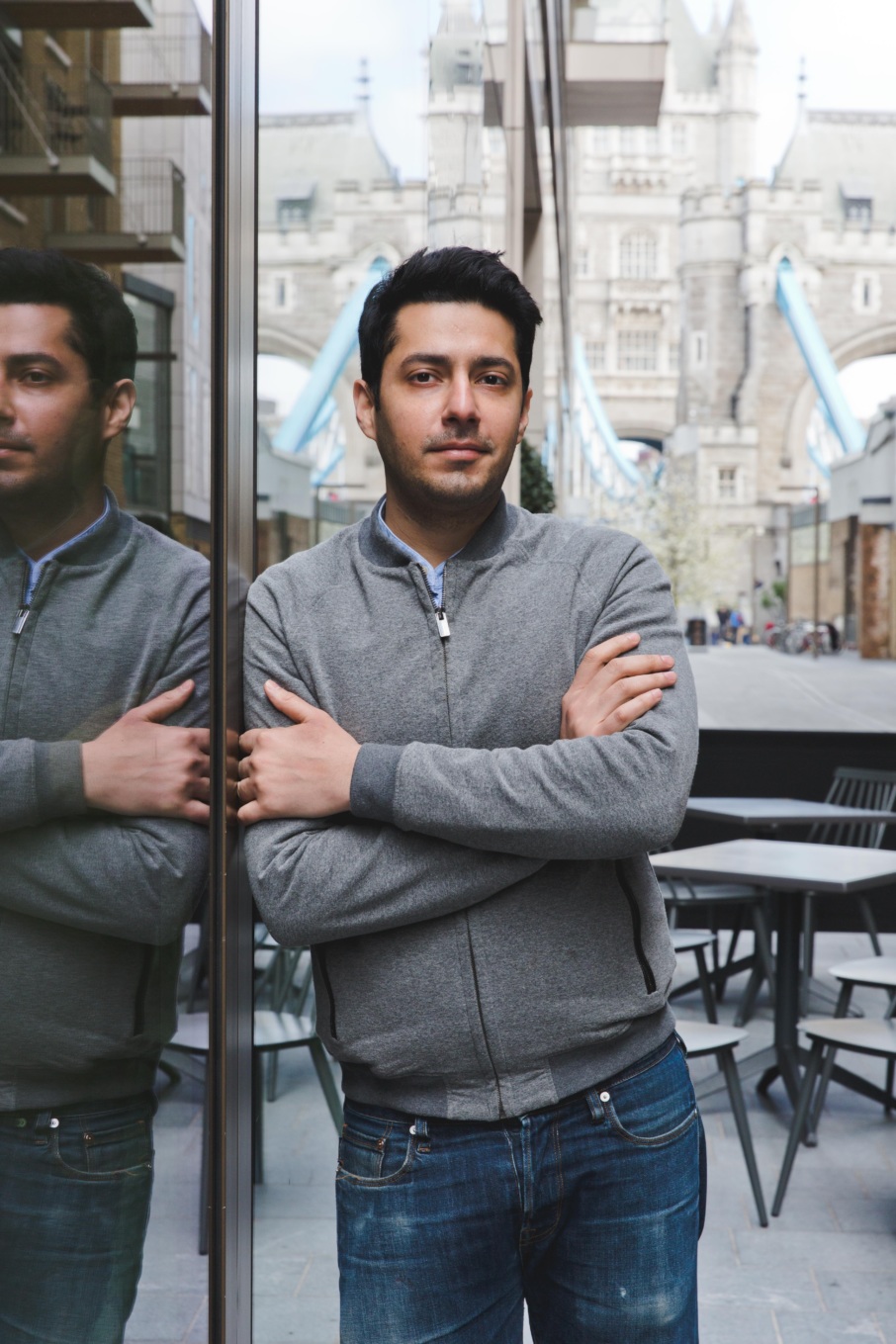
Are there any dishes you’re particularly proud of, or excited to share at Gunpowder Soho?
So, I grew up in Calcutta – it’s a city that stopped in time somewhere in the 1950s and 1960s. It used to be the capital of British India; a lot of the streets have the same names as in London. There’s a club culture from back in the day of golf clubs – not fancy places – but they’re steeped in time. And because they’ve been around for a long time, the community knows each other very well. There are a couple of dishes that an old-school cook used to prepare in one of the clubs that my dad used to play golf – and to be honest, we’ve asked for the recipe, and we’ve gotten it – including their version of prawn toast.
And then I have a friend whose family own a sari business in North Calcutta, and they have this old Bengali house with a courtyard in the middle, and it’s beautiful. They have this lady that’s – her mum used to cook with them, and now she cooks for them. And she cooks a particular prawn dish – prawn pulimunchi – that’s insane. She gets a completely different colour than we do. Language is a barrier, because she speaks a particular dialect, and we’ve been translating and doing videos on Whatsapp. We’ve been doing all of that to figure out what it is that they do to create this prawn dish.
But, we found that if we treat the lobster the same way, it gives us a better result. When you eat the lobster, it’s quite robust in terms of flavour, so it needs to be teamed with a kind of a dosa or a pancake that helps round the flavour through. And that’s what we put on the menu.
To be honest, it’s been [executive chef] Nirmal on the phone for 40-50 hours over a two-month period trying to figure it out, asking aunts or uncles, if they can find a version of it, or is there a way the spice was treated before it was used in the marinade, and so on. I think we’ve learned a lot in terms of this opening in terms of our repertoire of dishes that we tried to figure out. It’s been fun.
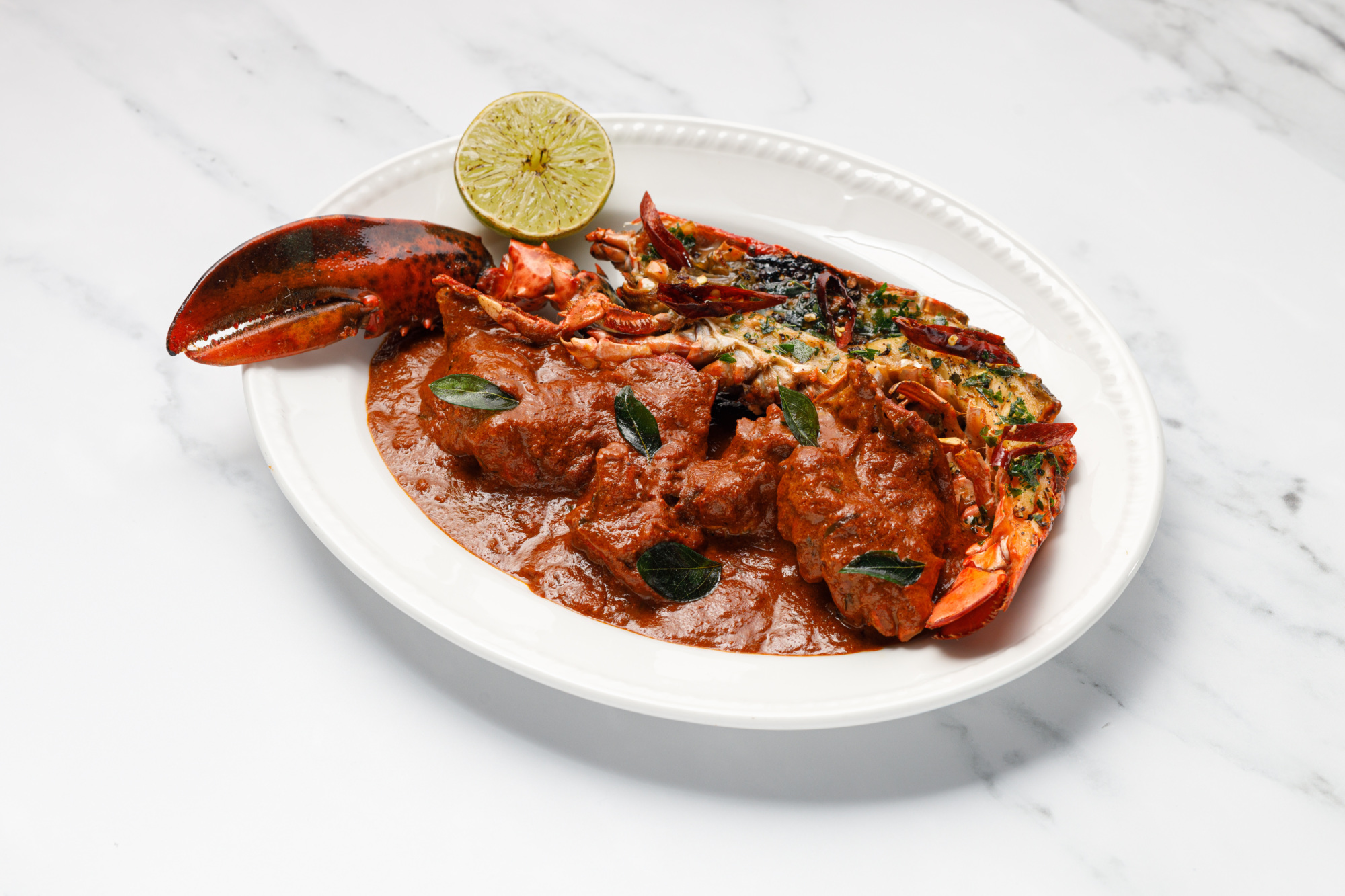
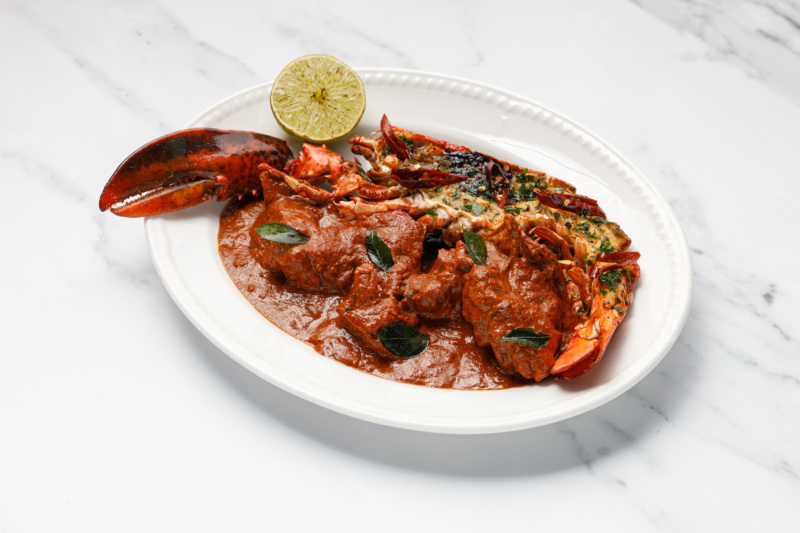
Who’s leading the kitchen at the Soho restaurant?
So, the head chef from Spitalfields is moving here, and the sous chef there is being promoted to head chef. The executive chef remains Nirmal Save, who was the first head chef at Spitalfields and is now the executive chef at all the restaurants. Our head chef from Spitalfields is Jose Fernandes – he’s a Goan-Portuguese chef and he’s now moving to Soho to run the kitchen with Nirmal.
“The market’s flooded with things we wouldn’t want to sell to our guests, frozen things coming in from across the world.”
Is that why there’s more seafood on the menu?
Yes. Growing up, Jose cooked a lot of seafood dishes. I think everyone goes mad with using the freshest fish, but if you’re growing up and don’t have the ability to pay the price for the freshest fish, you must use fish in a way so there’s less waste.
To be honest, we’ve always had lots of seafood [on the menu]. But it is more of a supply chain issue. Nirmal grew up in a town outside Bombay on the Maharashtra coast, and he belongs to a fishing and farming family. And our lean towards seafood also comes from Nirmal pushing on it. So, it brings a completely different dimension to the cooking. They’re so good that it would be sacrilege to not allow them to show what they want to do. And as more people join our team, their personalities will also shine through.
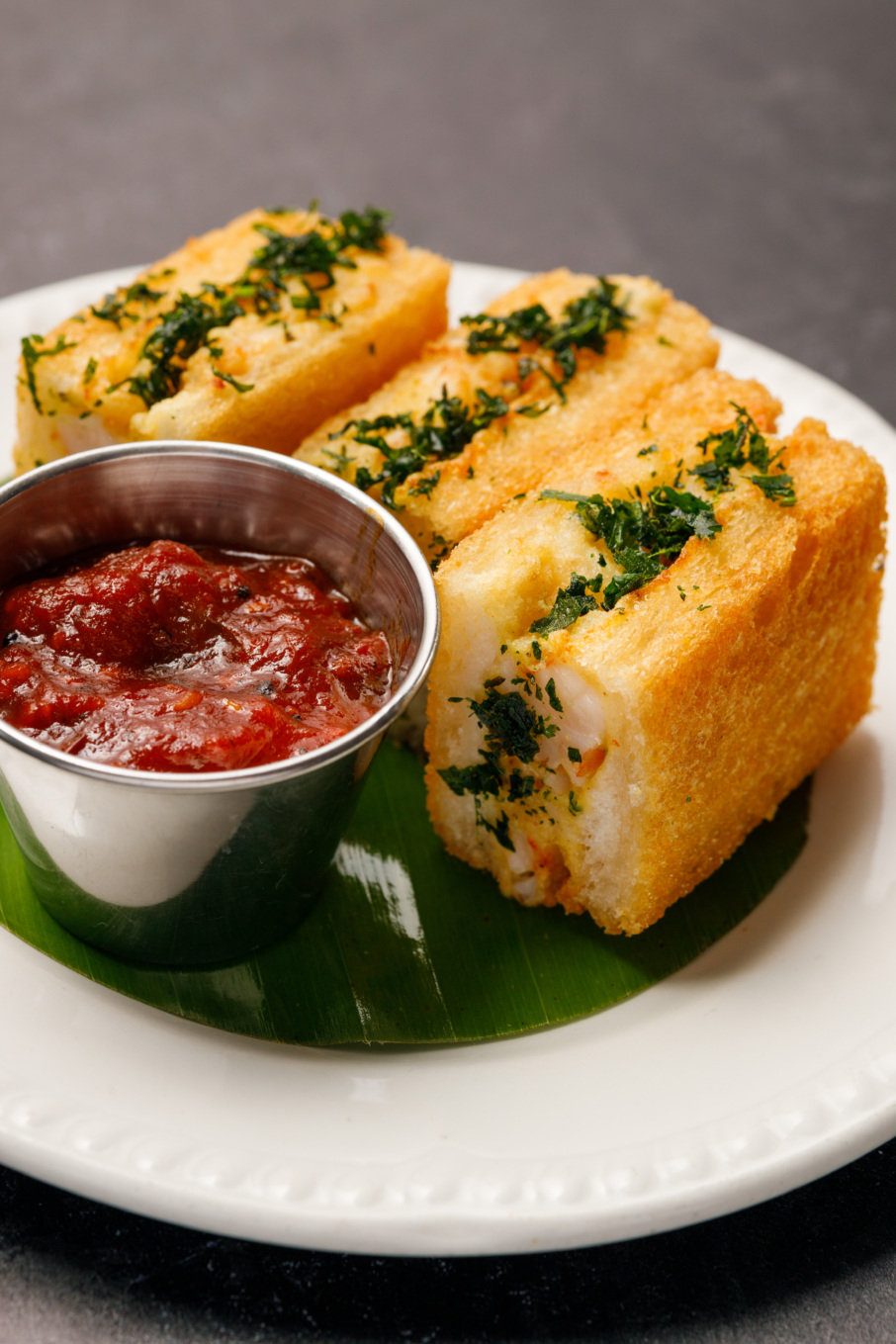
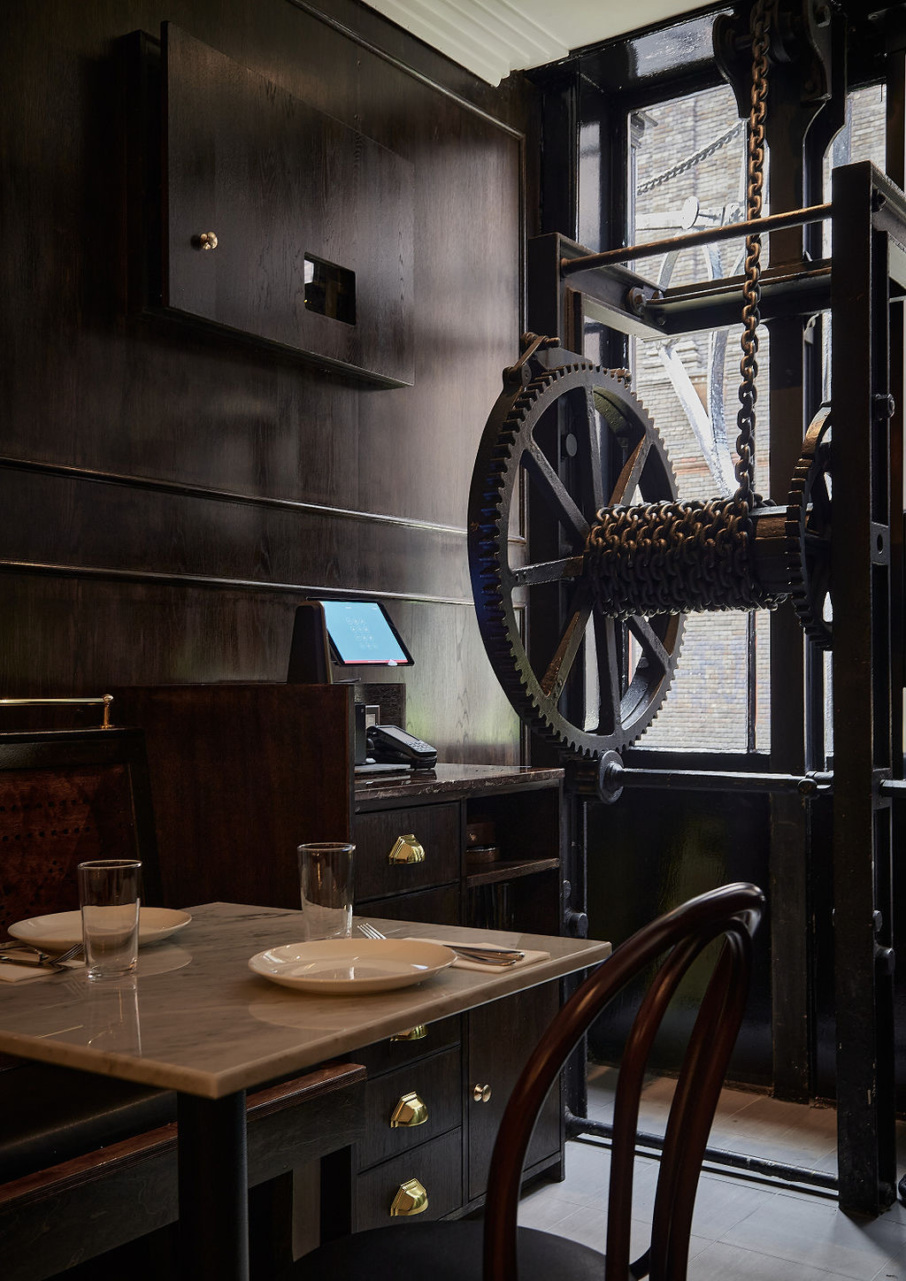
You were talking about supply chain issues. Given the two biggest things happening right now are the pandemic and Britain’s departure from the EU, how have supply chain issues affected you as a group and how have you been affected by lack of staff?
I think everyone would agree that currently, especially London, is facing a massive manpower shortage. I wish we had stayed in. Because it so happened that Brexit got enforced in the middle of the pandemic, it created even more issues for businesses, because some people went back and now, they aren’t able to come back.
For our team, it was difficult because we had many who had made London their home but had come from Europe or even northern Africa or Asia. And Brexit has completely tossed that on its head. We had a fantastic sommelier who was Italian – in the middle of the pandemic, he went back because he couldn’t be so far away from his family. And we have a staff member who’s Croatian and his father had a heart attack in the middle of the pandemic. He’s not coming back – it’s not possible. These things have affected us.
“London gives you the privilege of having your view on everything, but it can’t be a view for the sake of having one.”
In terms of produce price and availability, it’s also a big deal. The market’s flooded with things we wouldn’t want to sell to our guests, frozen things coming in from across the world. Whereas getting things that are overnight by boat or truck is becoming more difficult or expensive. For example, Spanish prawns were easy to get – they came in fresh, on the clock, they came in from the boat. They’re not that easy to get anymore. Even if you’re getting them, you’re getting them at a much more expensive price.
The thing is, we’re eating hyperlocal now. We’re looking at what we can get from – at least I’m learning what we can get from the northern part of the UK, Scotland, Ireland, where there are less people and produce has been thriving. But it requires a reasonable amount of adjustment from us and the supply chain as well. Local prawns aren’t the same. As much as we’d like to think – they take marinades and spices very differently.
Do you think it’s possible for everyone to eat hyperlocal?
It would be great in a utopian world, but it would break the logistics and supply chains’ back of the country. It’s not possible to suddenly go from farming or smaller dayboats taking out 50-100 plaice a day from a boat and then you’re selling maybe twenty in a restaurant. Every restaurant wants that fish. You’d have to start farming them.
When it comes to South Asian restaurants in London, what’s your view on what we do well and what would you like to see more of?
Given the history Britain has with India – I think the cultures knowingly or unknowingly over centuries developed a certain kind of interdependence with flavours. Even in drinks for that matter – look at something like gin. Gin and tonic was such a thing that went to India because of the heat, so when you see some cocktails come out, it’s very surprising to see new and interesting gin makers that are using different spices to shape their gin.
When it comes to food, it’s always been a situation where London has allowed people who are not accepted to be accepted with their viewpoint in terms of food. And it’s not only limited to South Asian food, but you can see it across cuisines.
At one point in time, in the structured restaurant scene, it felt like London had better Indian restaurants than India did. India will always have better Indian food from India or local food, if you might call it that. But it felt that the restaurant scene in London was not only hypercompetitive but the best in the world.
I’m glad that we’re part of the London showcase of our food. It also tells you that, yes, you can think outside the box but at the same time, you just cannot bullsh-t in London. You’ve got to be on top of your game. London gives you the privilege of having your view on everything, but it can’t be a view for the sake of having a view. Londoners know exactly what they want. And I think the pandemic made me more respectful of the fact that it’s f-cking hard to run a restaurant in London.
I think everyone that I’ve met that enjoys this or has chosen to do this is a hopeless romantic. We’re always hoping for something better, something newer.
Gunpowder Soho is open now. Make a reservation here.
David Paw is Resy’s International Editor. Follow him on Instagram here. Follow Resy, too.

